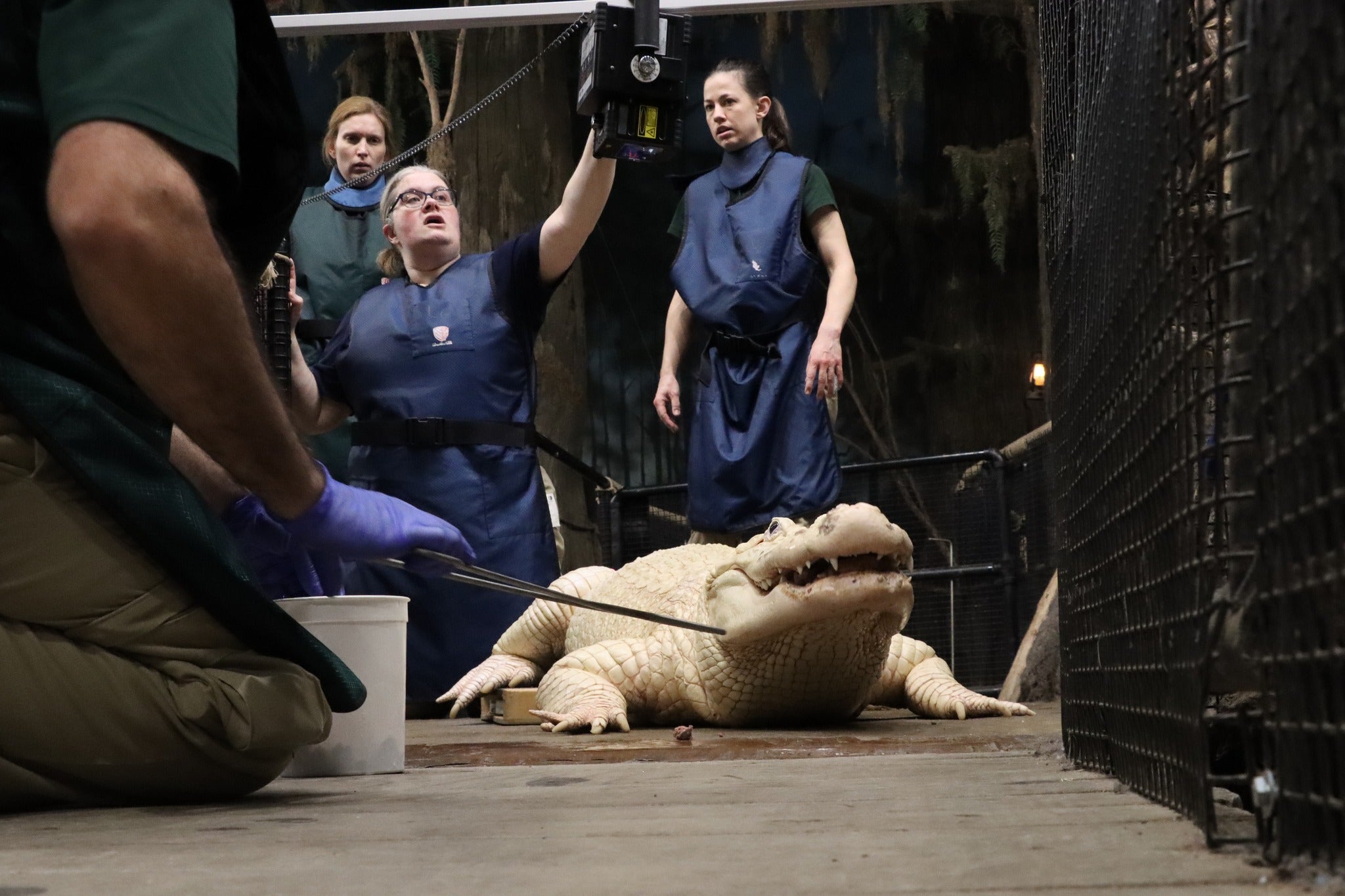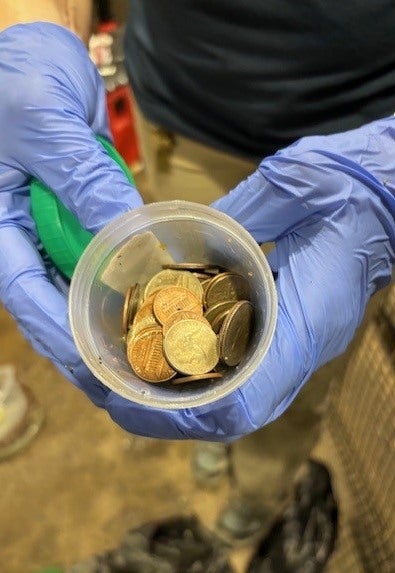Nebraska zoo removes 70 coins from rare white alligator’s stomach – and asks people to stop throwing them
Thibodaux is leucistic – an extremely rare condition that causes the alligator to have translucent white skin and deep blue eyes
Visitors at a zoo in Nebraskawere urged to stop throwing loose change into animal enclosures after 70 metal coins were found inside the stomach of a rare white alligator.
The 36-year-old alligator, Thibodaux, had to undergo an urgent veterinary procedure after dozens of coins were detected inside its stomach at the Henry Doorly Zoo and Aquarium in Omaha.
Thibodaux is leucistic – an extremely rare condition that causes the alligator to have translucent white skin and deep blue eyes. Leucism causes the partial loss of all types of pigmentation, including carotenoids.
Veterinarians at the zoo said they identified "metal foreign objects in the stomach of an iconic resident" during a routine examination of all the 10 alligators at the zoo.
After detecting the objects, the zoo workers acted fast and took him for a veterinary procedure on Thursday to remove the coins "before they caused any problems".
"With the help of his training, Thibodaux was anesthetised and intubated to allow us to safely manage him during the procedure," associate veterinarian Christina Ploog, said in a statement.
"A plastic pipe was placed to protect his mouth and safely pass the tools used to access the coins, such as a camera that helped us guide the retrieval of these objects."

The coins were discovered in X-ray images and a scan after the procedure confirmed that the objects were removed.
The zoo said that "Thibodaux recovered well from the procedure".
Taylor Yaw, director of animal health at the zoo, said: “Though a procedure like the one done on Thibodaux is not always common, it’s a great example of what our animal care and animal health teams do every day across our campus to provide excellent care to our animals.”
The zoo has urged guests to “not throw coins into any bodies of water”.

“Any loose change can instead be turned in for a souvenir coin in one of the several machines around the Zoo or in our coin wishing well located in the atrium of the Desert Dome,” the zoo said.
Mr Ploog said even though the zoo does regular cleaning in the habitats of the animals, they could end up ingesting the foreign objects in between cleanings.
"In between cleanings is when our alligators still manage to get them before they are removed."
Join our commenting forum
Join thought-provoking conversations, follow other Independent readers and see their replies
Comments
Bookmark popover
Removed from bookmarks